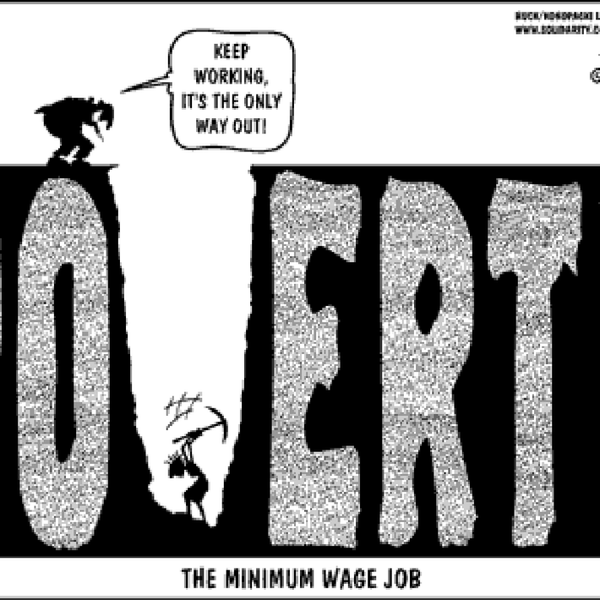Which is more important to a country: a sound fiscal policy or sound social policy? Oftentimes, this question is what divides people between the Democratic and Republican camp. Very few people identify 100% with the party they affiliate with, and this question can give an insight on the people tend to think. Does focusing on one policy choice over another make real sense, though? It may feel that way. After all, someone can look at the financial crises of our nation's history and point out the significance they played as to why fiscal responsibility and wise economic policy is more important than social issues. Similarly, someone can look at the state of minorities and other groups throughout our history and say the same thing about social policy. Which is right?
In reality, fiscal issues cannot be separate from social issues. Social issues have a profound effect on our economy, and our economic condition speaks volumes on how we treat our citizenry. When we talk about gun restrictions, we are not just talking about putting a halt to gun violence. Regardless of your view on whether or not gun restriction would actually do this, it is unquestionable that gun restrictions would ruin the gun industry, add to unemployment, and stop development. When we talk about stopping gay marriage, we are not talking about maintaining the moral fabric of society. It is undeniable that gay marriage is great for the economy. Immigration, racism, sexism, veteran homelessness, rape, obesity, organized crime - all social issues, in some way or another, have an effect on the fiscal world.
Likewise, social issues are always effected by the fiscal environment. Spending cuts to education has a disproportionate effect on poorer families than on wealthier ones, helping perpetuate the cycle of poverty and increasing obesity rates in children. The costs of healthcare are overall problematic for the family unit as the elderly become more dependent on their children to care for them. A prolonged deficit reduces investment, slowing the growth of capital stock. This would "substantially reduce the economy's capacity to produce good and services," because, by reducing capital stock, the "marginal product of labor" (which sets labor wages) decreases and the "marginal product of capital" (which determines prices) increases in response to the decrease in worker's capital. These detrimental effects are passed down to the worker, making life harder and creating more social problems like poverty and homelessness. To put it simply, the fiscal environment affects the social condition of the American people.
So, neither issue is more important. To sacrifice one issue, ultimately, is to sacrifice the other. By compromising on your principles to make gains in on arena, all you do is lose in both. Vote based on your beliefs, not based on a mentality that there exists a dichotomy between fiscal and social problems, with one being more or less important than the other.





















